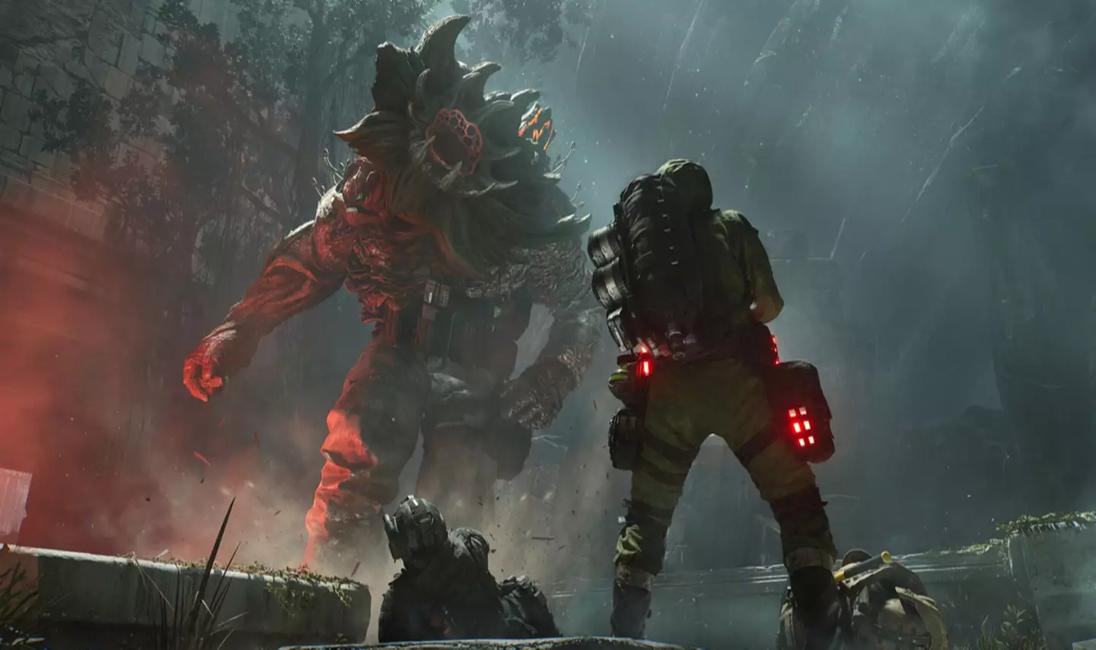Okay, so picture this: it's 2026. You boot up your console (or maybe we're all streaming games directly into our brains by then, who knows?), and you're faced with... well, not just another FPS. Nope. This one's different. This one promises to be something truly special: a fusion of the gritty, emotionally charged world of The Last of Us with the high-octane, adrenaline-pumping action of Call of Duty. Sounds insane, right? I've got to admit, the sheer ambition of that concept alone makes me sit up and pay attention.
But can it actually work? That's the million-dollar question (or, more likely, the hundred-million-dollar question, considering game development budgets these days). We've seen plenty of games try to blend genres before, and the results have been…mixed, to say the least. But every now and then, a game comes along that manages to pull it off seamlessly, creating something truly unique and unforgettable. Could this be one of those games?
When Worlds Collide: The Premise
Let's dive a little deeper into what this hypothetical game might actually look like. I'm imagining a world ravaged by some sort of disaster – maybe not zombies exactly, but something equally terrifying. Resources are scarce, factions are warring for control, and humanity is clinging to survival by a thread. So far, so Last of Us, right? But here's where the Call of Duty element comes in. Think intense, squad-based combat, customizable weapons, and a progression system that keeps you grinding for that next sweet unlock. Maybe even some parkour elements to spice things up!
The story, naturally, would be crucial. It couldn't just be a mindless shooter with a thin veneer of narrative. It would need to have characters you genuinely care about, tough choices that force you to question your own morality, and a plot that keeps you guessing until the very end. Think Joel and Ellie navigating a zombie-infested wasteland, but with the added pressure of tactical combat and strategic decision-making.
And that leads to another important point: the feel of the gunplay. Here's the thing: if the shooting mechanics don't feel tight and responsive, the whole thing falls apart. It needs to be satisfying to take down enemies, whether you're using a carefully aimed sniper shot or a spray-and-pray assault rifle. Maybe a deep dive into the world of FPS mechanics could help. The tension and release of combat needs to be finely tuned to keep players on the edge of their seats.
The Power of Immersion
Immersion is key. The graphics need to be stunning, the sound design impeccable, and the world needs to feel alive (or, you know, as alive as a post-apocalyptic wasteland can feel). Little details matter. The way the wind rustles through the abandoned buildings, the cries of the infected echoing in the distance, the weight of your character's footsteps as they trudge through the mud – all of these things add up to create a truly believable and engaging experience.
I keep coming back to this point because it's crucial: this game needs to feel real. It needs to make you forget, even for a little while, that you're sitting on your couch with a controller in your hand. It needs to transport you to another world and make you believe that you're actually there, fighting for your survival. The frustrating thing about this topic is that so many games miss the mark.
But think about it this way: what if the enemy AI was actually intelligent? What if they used cover effectively, flanked your position, and coordinated their attacks? Suddenly, every encounter becomes a tense, strategic battle of wits. No more running and gunning like a headless chicken. You'd have to think carefully about your every move, plan your attacks, and work together with your teammates to survive.
Can it Avoid the Genre Trap?
Okay, so we've established that this game has the potential to be amazing. But there are also plenty of ways it could go wrong. One of the biggest dangers is falling into the trap of genre clichés. We've all seen it before: the same tired tropes, the same predictable plot twists, the same uninspired gameplay mechanics. This game needs to break free from those limitations and offer something truly fresh and innovative.
Maybe that means incorporating elements of survival horror. Imagine having to scavenge for resources, craft your own weapons and tools, and manage your character's hunger, thirst, and fatigue. Suddenly, the focus shifts from simply blasting your way through hordes of enemies to carefully managing your resources and making tough choices about what to prioritize.
But there’s more. I initially thought that the blending of these games will be the same with others, but after looking deeper, I think there's a possibility of a masterpiece here.
Actually, that's not quite right. Maybe the key is to embrace the strengths of both genres while minimizing their weaknesses. Take the emotional depth and narrative complexity of The Last of Us and combine it with the polished gunplay and addictive progression of Call of Duty. The key is balance.
And here is the link about the game strategy.
Looking Ahead: Is There Hope For 2026?
So, is this The Last of Us meets Call of Duty FPS just a pipe dream? Or could it actually become a reality? Only time will tell. But one thing's for sure: the potential is there. If a developer can nail the tone, the gameplay, and the story, this could be one of the most memorable and impactful games of the next decade.
Think about it this way: gamers are constantly craving something new, something different. They're tired of the same old sequels and rehashes. They want experiences that challenge them, that surprise them, and that leave them feeling like they've actually accomplished something. A game that successfully blends the emotional depth of a narrative-driven adventure with the adrenaline-pumping action of a first-person shooter could be exactly what they're looking for.
But will it happen? I really don't know. Maybe! It would be awesome. Also check out this one.
FAQ: Your Burning Questions Answered
Will this fusion dilute what makes each franchise great?
That's the big fear, isn't it? The concern that trying to blend two distinct styles will result in a watered-down, uninspired mess. The key, I think, is finding the right balance. The developers need to understand what makes each franchise special and then carefully weave those elements together in a way that feels organic and natural. It's a tough challenge, but if done right, the result could be something truly special.
How can the game balance emotional storytelling with fast-paced action?
This is another crucial question. You can't just have moments of intense action followed by long stretches of slow-paced dialogue. The two elements need to be integrated seamlessly. Perhaps the action sequences could be used to reveal more about the characters' personalities and motivations. Or maybe the quieter moments could be used to build suspense and anticipation before a big battle. The goal is to make every moment feel meaningful and purposeful, contributing to the overall experience.
What kind of world-building would support this hybrid FPS style?
The world needs to feel both dangerous and believable. Think a post-apocalyptic setting, but one that's grounded in reality. The environments should be detailed and immersive, with a sense of history and character. Resources should be scarce, forcing players to make tough choices about what to prioritize. And the enemies should be both challenging and believable, with their own motivations and behaviors.
Why FPS and not another genre?
Here's the thing: the first-person perspective is incredibly powerful. It allows you to truly immerse yourself in the world and experience the action firsthand. It puts you right in the shoes of the protagonist and makes you feel like you're actually there, fighting for your survival. Plus, the FPS genre is incredibly versatile. It can be adapted to fit a wide range of settings, stories, and gameplay mechanics. It's a natural fit for a game that's trying to blend emotional storytelling with fast-paced action.
How do you avoid making it "just another" zombie shooter?
Ah, the zombie fatigue! It's real. The key is to move beyond the typical zombie tropes. Instead of mindless hordes, maybe the infected could be more intelligent, more strategic, more…human. Maybe they could retain some memories or emotions from their past lives, adding a layer of psychological horror to the gameplay. And maybe the story could focus on the human element, exploring the relationships and conflicts between the survivors as they struggle to rebuild their lives in a world gone mad. The FPS should not be the central, as it is with the Call of Duty.





















